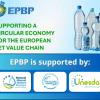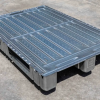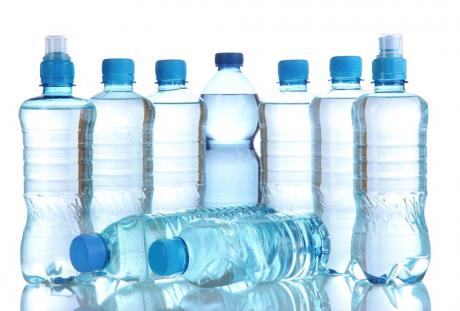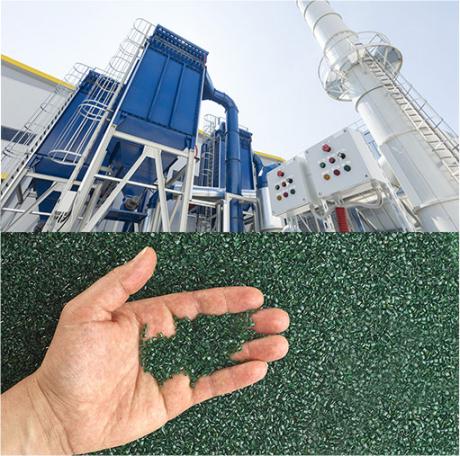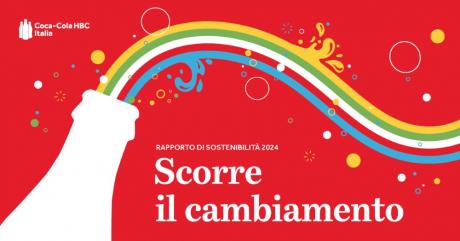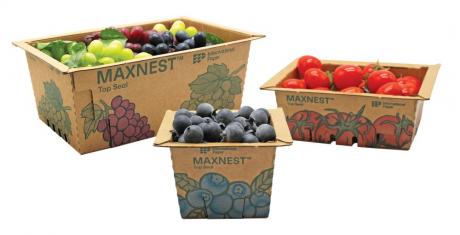The results of a recent survey on the use of flexible packaging, commissioned by Flexible Packaging Europe (FPE), reveal interesting data. The representative survey was conducted by the global market research institute Censuswide across six major European markets – France, Germany, Italy, Spain, the United Kingdom, and Poland – in 2024, gathering responses from a total of 6,000 consumers.
According to the survey, European consumers particularly appreciate flexible packaging for its excellent protective and preservation properties (46%), ease of use (45%), and lightweight design (42%). This popularity is more pronounced among younger people and in the Polish (28%) and French (25%) markets.
Regarding sustainability, half of the respondents consider flexible packaging recyclable. Although differences emerge between countries – with 65% in Spain, 58% in Italy, 40% in Germany, and 38% in Poland – variations between age groups and gender are marginal. However, these figures highlight the need for greater awareness of the environmental benefits of flexible packaging.
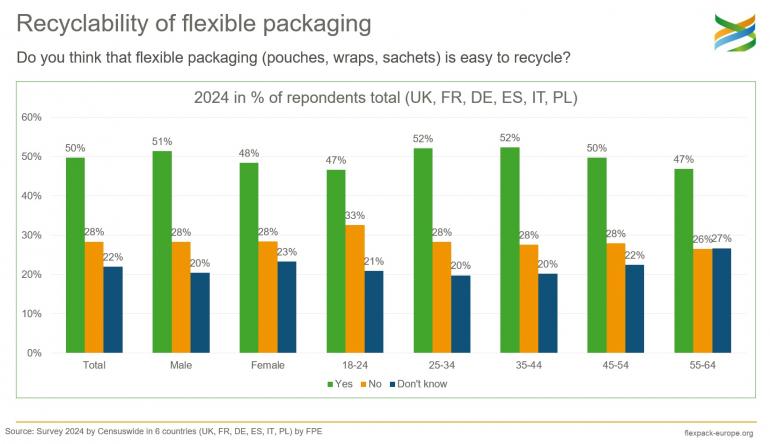
When asked what actions could reduce the environmental impact of food, 44% responded by avoiding food waste, followed by 41% who indicated recycling packaging, and 31% who mentioned reducing packaging material use. The latter feature, in particular, represents a strong point of flexible packaging, which allows for more efficient resource use compared to other solutions.
As expected, preferences for packaging types were well defined: glass and paper were mentioned by 50% and 43% of respondents, respectively. These were followed at a distance by rigid plastic (24%) and flexible packaging (22%), which still outperform metal packaging and drink cartons.
When asked about the individual advantages of flexible packaging, such as product protection, convenience, lightweight, availability in various sizes, and stability, women showed a slightly higher level of agreement than men.
Future Prospects Despite Challenges
Despite the challenges facing flexible packaging in certain markets, the results of the survey also offer clear challenges and opportunities," says Guido Aufdemkamp, Executive Director of Flexible Packaging Europe. "Even though the appreciation of the protective and convenience properties is already good, we naturally want to raise awareness of these further, as flexible packaging is not an end in itself, but must optimally protect the respective product until it is consumed. In particular, the perception of recyclability and its practical implementation must be further promoted across Europe. Our goal remains to make consumers even more aware of the benefits of flexible packaging, such as resource efficiency.
The flexible packaging industry is thus facing a significant challenge: improving the perception of its environmental impact and promoting innovative solutions to enhance material circularity. In this context, collaboration between companies, institutions, and consumers will be crucial to fostering a transition towards a more sustainable economy.


